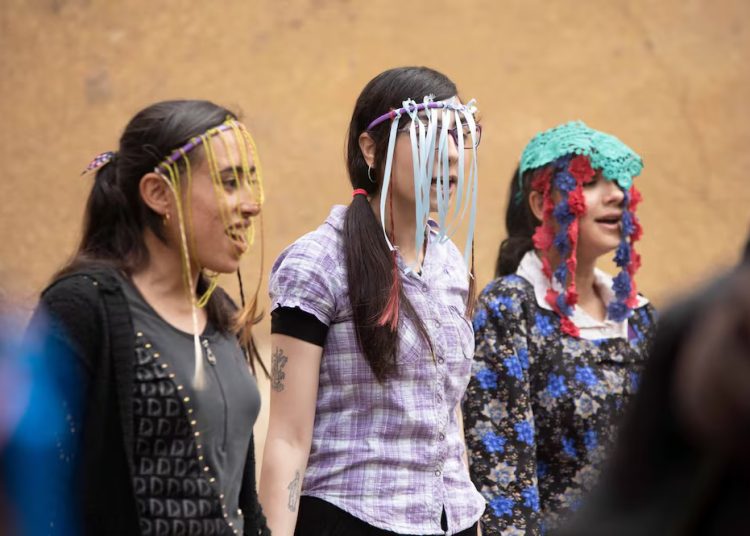Arab cinema is making significant steps at the 77th edition of the Cannes International Film Festival, with participation from Egypt, Saudi Arabia, Morocco, Palestine and Algeria.
The movies compete for prizes in most of the festival’s categories, including the official competition, the Critics’ Week Award, and the Un Certain Regard section.
Egypt is participating with two movies; the documentary Rafaat Aini lil-Samaa (The Brink of Dreams) directed by Nada Riyadh and Ayman el-Amir, which will be screened at Festival’s Critics’ Week and Her Sharq 12 (East of Noon) directed by Hala el-Qusi, which will be screened at the Directors’ Fortnight section.
The Brink of Dreams traces the journey of three Copt teenage girls who challenge traditional Upper Egyptian society by forming an all-female theatre troupe.
The movie discusses a number of issues including early marriage, domestic violence and girls’ education. East of Noon is a fantasy that is set in an enclosed mysterious place outside time.
It tells the story of a young musician who rebels against the person who rules this world with absurdity and violence. The musician plans to break the grip of the ruler and gain freedom in a wider world.
Saudi Arabia is participating in the Cannes International Film Festival for the first time with the movie Noura written and directed by Tawfiq Al-Zaidi and supported by the Red Sea Film Fund. The movie will be screened lin the Un Certain Regard section.
Noura is the first Saudi film in the category of feature films. It was filmed in the ancient city of Al-Ula, and its events take place during the 1990s. It tells the story of Noura, (Maria Bahrawi), an ambitious and dreamy girl, who loves life and art, despite the lack of artistic opportunities available to her. As the events develop, she meets the teacher Nader (Yaqoub Al-Farhan), who reveals to her that art can be a means of communication.
Moroccan feature film The Distant Sea by director Said Himmich will be screened as part of the Critics’ Week screenings in a special screening out of competition.
The Distant Sea follows the life of Nour, a young Moroccan who decides in the early 1990s to immigrate illegally to Marseille, France, to live among a group of people who went through the same experience and are involved in criminal acts that do not hinder their desire to enjoy life, until he meets an eccentric French officer, who changes his life path.
The film follows Nour’s story over an entire decade that ends before the September 11 terrorist attack in 2001, which will greatly change the image of immigrants in the West.
Another Moroccan film participating in the Cannes this year is Everyone Loves Touda directed by Moroccan director Nabil Ayouch. It tells the story of a Moroccan woman (Nisreen Radi), a popular singer who works in a small city to support her only son.
She faces the masculinity and judgments surrounding her, dreaming of being able to break the restrictions and achieve great stardom in Casablanca.
As part of the Directors’ Fortnight screenings, Palestinian director Mahdi Fleifel will participate with his movie To a Land Unknown, adapted from Ghassan Kanafani’s famous novel Men in the Sun.
The film features the journey of two friends from Ain al-Hilweh camp, who fled to the Greek capital, Athens, in search of a better life. But losing the money allocated for immigration puts them in a series of unexpected events that put their friendship to the test.
Moreover, Baad el-Shams (Aftersun) is the only Arab short film at the Cannes Film Festival this year. It is a French-Belgian-Algerian co-production by director Ryan McKirdy.
The events of the film take place at the end of the 1980s, when an Algerian sets out on a car trip from the suburbs of Paris towards Marseille, and the trip mixes reality with fantasy, and enjoyment with enthusiasm, freedom, and nostalgia for the past and homeland.






Discussion about this post